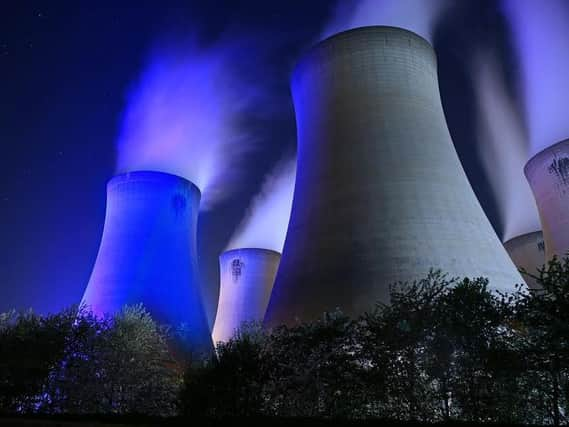Drax to double biomass production with £436m deal to slash carbon emissions


Drax, which owns and operates the power station in North Yorkshire, is to buy Pinnacle Renewable Energy as part of its ambition to be a carbon negative company by 2030.
The acquisition, which remains subject to Drax and Pinnacle shareholder approval, court approval, regulatory approvals and the satisfaction of certain other customary conditions, has been unanimously recommended by the board of Pinnacle and has the full support of Pinnacle’s major shareholders.
The deal should complete in April or May.
Advertisement
Hide AdAdvertisement
Hide AdDrax, the UK's largest power station, will stop using coal by the end of March and will then move to burning biomass - wood pellets which come from sustainable forests.
The firm said the deal will significantly reduce the cost of biomass production and will add a major biomass supply business underpinned by long term contracts with high-quality Asian and European counterparties.
Will Gardiner, chief executive of Drax, said: “I am excited about this deal which positions Drax as the world’s leading sustainable biomass generation and supply business, progressing our strategy to increase self-supply, reduce our biomass production cost and create a long-term future for sustainable biomass.
“We expect to benefit greatly from Pinnacle’s operational and commercial expertise, and I am looking forward to what we can achieve together.”
Advertisement
Hide AdAdvertisement
Hide Ad“It will pave the way for our plans to use Bioenergy with Carbon Capture and Storage (BECCS), and become a carbon negative company by 2030 – permanently removing millions of tonnes of carbon dioxide from the atmosphere each year.
"Negative emissions from BECCS are vital if we are to address the global climate emergency whilst also providing renewable electricity needed in a net zero economy, supporting jobs and clean growth in a post-Covid recovery.”